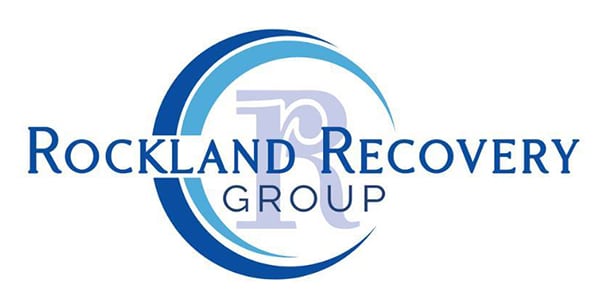Rehab therapy is a therapeutic approach that includes a range of options for substance abuse treatment. Understanding rehab therapy begins with acknowledging that addiction is a disease, and it’s one that millions of people suffer from.
Addiction requires treatment, similar to any other type of chronic disease. Some individuals need only short-term rehab care, while others require ongoing support to sustain recovery. Rehab includes every step of this journey, from the initial detox stage to long-term recovery and all the challenges and successes.
What To Expect in Rehab Therapy
Each person who enters rehab comes from a unique place in their recovery. This, combined with the available rehab therapies, can make the rehab experience different for everyone.
Those who are entering rehab for the first time or immediately following a relapse may need to first go through detox. When entering an inpatient addiction rehab program, medically supervised detox is typically the first stage. Detox generally lasts between 3 and 7 days.
Whether you’re entering inpatient or outpatient addiction treatment, you’ll be expected to participate in assessments and evaluations. Care providers need to understand your physical health, mental health, history of addiction, and other factors that may influence your substance use and recovery.
During and after the evaluation, you’ll meet with addiction specialists and care providers to determine an initial treatment plan based on your individual recovery needs. Let’s take a look at the different types of rehab therapy and treatment options.
If you’re unsure of how to find a drug or alcohol rehab center located near you, the Substance Abuse and Mental Health Services Administration offers a comprehensive online directory, along with many other valuable resources.
Types of Rehab Therapy
Rehab programs fall into two general categories – inpatient and outpatient. Within each, you’ll experience a continuum of care throughout recovery and a range of evidence-based therapeutic approaches to rehab.
Rehab Therapy Programs
- Inpatient Addiction Rehab: This is residential addiction rehab, where support and structure are offered 24 hours a day. Inpatient rehab is typically built around a 30-day schedule but may be shorter or longer depending on individual needs and progress.
- Outpatient Addiction Rehab: Outpatient rehab is less restrictive and offers more flexibility than inpatient treatment. Rather than staying at the rehab facility, treatments are scheduled based on the individual’s treatment plan. There are different levels of outpatient rehab. They range from full-day (partial hospitalization) and half-day (intensive outpatient) programs, to traditional outpatient treatments that may be scheduled independently several times a week.
Rehab Treatment Options
- Individual Therapy: There are several evidence-based therapies offered for the treatment of addiction. These include therapeutic approaches such as cognitive behavioral therapy (CBT), dialectical behavioral therapy (DBT), and trauma-informed therapy. Behavioral therapy for addiction is a cornerstone of effective treatment, helping individuals to identify and change destructive behaviors and thought patterns.
- Medication-Assisted Treatment: For certain types of addiction, medications can be an option for lessening withdrawal symptoms, reducing cravings, and lowering the risk of relapse. Medication-assisted treatment is most commonly used in treating opioid and alcohol addiction.
- Dual Diagnosis Treatment: Mental health conditions and addiction frequently co-exist. It’s often the case that undiagnosed or undertreated mental health issues factor into addiction and the ability to recover. Dual diagnosis treatment is an approach that treats both the addiction and co-occurring mental health conditions simultaneously, improving both quality of life and success in recovery.
- Group Therapy: Group settings, such as 12-step program meetings, offer tremendous healing and therapeutic value. Group therapy offers the opportunity to share one’s experiences, learn from others, feel less alone, and form healthy bonds with others on a similar recovery journey. Counseling in rehab is a vital component of recovery, providing a safe space for individuals to explore their emotions, build coping skills, and receive continuous support. Counseling can be done individually or in group settings, and it helps to address underlying issues that contribute to addiction.
- Holistic Therapy: When people think of rehab, they don’t often expect that the best programs also offer a holistic approach to treatment to complement different rehab therapies. Art therapy, equine therapy, nutritional therapy, biofeedback, yoga, and mindfulness meditation are all examples of complementary holistic therapies.
The Importance of Aftercare in Recovery
Completing a rehab program is a significant milestone, but the journey to recovery doesn’t end there. Aftercare is an important component of sustained sobriety and long-term success. Aftercare programs provide ongoing support, helping individuals transition from structured rehab environments to everyday life.
Types of Aftercare
Aftercare can take many forms, including:
Sober Living Homes
These are residential facilities that provide a supportive and substance-free environment for individuals transitioning from rehab. Residents are typically required to follow house rules, attend meetings, and participate in community activities.
Continued Therapy and Counseling
Regular therapy sessions, both individual and group, help maintain the progress made during rehab. Counseling in rehab often continues into aftercare, addressing ongoing challenges and reinforcing coping strategies.
Support Groups
Participating in groups like Alcoholics Anonymous (AA) or Narcotics Anonymous (NA) offers ongoing peer support. These groups provide a community of individuals who understand the struggles of addiction and can offer empathy and encouragement.
Follow-Up Medical Care
Regular check-ups with healthcare providers ensure that physical and mental health needs are met. This can include medication management, mental health treatment, and monitoring for any signs of relapse.
The Role of Family and Friends in Rehab Therapy
Support from family and friends is an important component of successful rehab therapy. Loved ones can provide the encouragement and stability needed to navigate the challenging recovery journey. Many comprehensive rehab programs include family therapy sessions, which aim to heal strained relationships and educate family members about addiction.
These sessions help families learn how to support their loved ones without enabling their addiction, creating a healthier home environment. Encouraging open communication, setting healthy boundaries, and participating in support groups for families of addicts are ways to support someone in rehab effectively.
Comprehensive Rehab Treatment in Massachusetts
Rehab therapy can help you or your loved one regain control of your life and heal from addiction. Multiple therapeutic approaches in rehab can be tailored to your individual recovery needs. At Rockland Recovery, we’re committed to supporting you through this journey. Contact Rockland Recovery today at (888) 299-4833. We’re here to answer your questions and help you take the first steps toward recovery.




